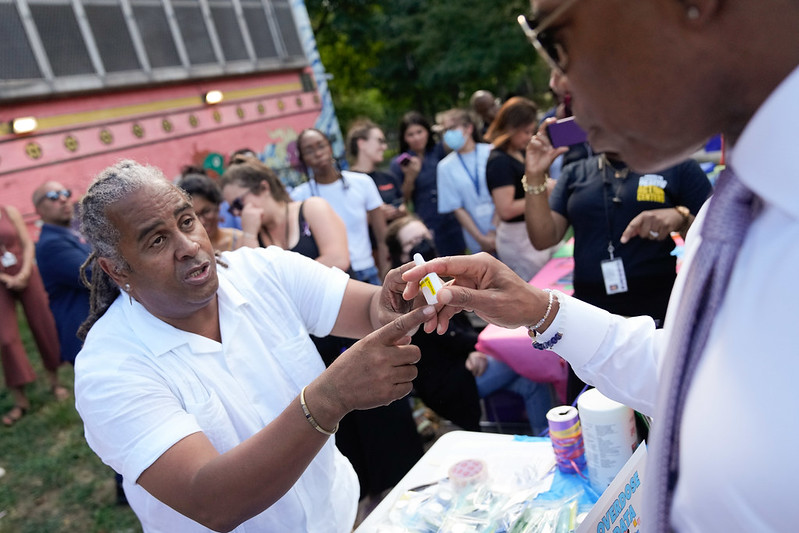
Mayor Adams overdose reversal treatment (photo: Michael Appleton/Mayor's Office)
New York City’s overdose crisis has reached historic levels: 2,668 people died of drug overdoses in 2021, a 78% increase since 2019. As with many public health crises, the impacts are uneven. People with a lower income are more than twice as likely to die of an opioid overdose compared to more affluent groups. And last month, the CDC reported that Black Americans are dying of fentanyl overdoses at significantly higher rates than other communities.
As someone with lived experience with substance use, I know that harm reduction is far more helpful than the failed War on Drugs and telling people to “just say no.” Harm reduction is often misunderstood or stigmatized, but it has been shown to reduce the risk of infections and overdose. By meeting people where they are and helping them reach their goals, this approach ensures individuals who use drugs are treated with dignity and respect—not judgment.
I am also a manager at Alliance for Positive Change’s Lower East Side Harm Reduction Center, and I see every day how the tools and resources we provide are helping people. The good news is that harm reduction is starting to become more widely accepted. A big step in the right direction was the FDA’s recent approval of over-the-counter sale of Narcan, which will go into effect this summer. Getting this safe and easy-to-use overdose reversal medication into the hands of more people will certainly save lives.
However, barriers to accessing Narcan will persist. People who do not have the resources to purchase the drug will likely continue to face challenges obtaining it. It remains to be seen whether over-the-counter Narcan will be covered by private and public insurance plans, and regardless, it may still be inaccessible to those who are uninsured. Also, not everyone will feel comfortable going into a pharmacy and purchasing Narcan due to fear of being judged.
Community-based harm reduction organizations like Alliance for Positive Change can help to break down these barriers. In addition to providing free support, harm reduction organizations have spent years building trust with participants, so they feel comfortable coming to us for Narcan. We also go further than a pharmacy can, providing fentanyl testing strips, individual and group counseling, syringe exchange services, and more.
Our resources are in great demand: last month, we saw a record number of participants, and handed out a record number of fentanyl test strips.
Local and federal leaders should build upon the momentum of Narcan’s over-the-counter approval and invest in organizations that offer no-cost, nonjudgmental harm reduction resources in communities most impacted by the overdose crisis. It will save lives.
***
Joel Teron is a harm reduction manager at Alliance for Positive Change’s LES Harm Reduction Center. On Twitter @thealliance_nyc.
***
Have an op-ed idea or submission for Gotham Gazette? Email This email address is being protected from spambots. You need JavaScript enabled to view it.




